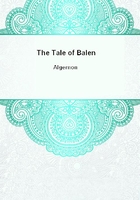
第7章 CHAPTER II(3)
Then the children fell into silence, till Doss, the dog, growing uneasy at its long continuance, sniffed at one and the other, and his master broke forth suddenly:
"If they could talk, if they could tell us now!" he said, moving his hand out over the surrounding objects--"then we would know something. This kopje, if it could tell us how it came here! The 'Physical Geography' says," he went on most rapidly and confusedly, "that what were dry lands now were once lakes; and what I think is this--these low hills were once the shores of a lake; this kopje is some of the stones that were at the bottom, rolled together by the water. But there is this--How did the water come to make one heap here alone, in the centre of the plain?" It was a ponderous question; no one volunteered an answer. "When I was little," said the boy, "I always looked at it and wondered, and I thought a great giant was buried under it. Now I know the water must have done it; but how? It is very wonderful. Did one little stone come first, and stop the others as they rolled?" said the boy with earnestness, in a low voice, more as speaking to himself than to them.
"Oh, Waldo, God put the little kopje here," said Em with solemnity.
"But how did he put it here?"
"By wanting."
"But how did the wanting bring it here?"
"Because it did."
The last words were uttered with the air of one who produces a clinching argument. What effect it had on the questioner was not evident, for he made no reply, and turned away from her.
Drawing closer to Lyndall's feet, he said after a while in a low voice:
"Lyndall, has it never seemed to you that the stones were talking with you?
Sometimes," he added in a yet lower tone, "I lie under there with my sheep, and it seems that the stones are really speaking--speaking of the old things, of the time when the strange fishes and animals lived that are turned into stone now, and the lakes were here; and then of the time when the little Bushmen lived here, so small and so ugly, and used to sleep in the wild dog holes, and in the sloots, and eat snakes, and shot the bucks with their poisoned arrows. It was one of them, one of these old wild Bushmen, that painted those," said the boy, nodding toward the pictures--"one who was different from the rest. He did not know why, but he wanted to make something beautiful--he wanted to make something, so he made these.
He worked hard, very hard, to find the juice to make the paint; and then he found this place where the rocks hang over, and he painted them. To us they are only strange things, that make us laugh; but to him they were very beautiful."
The children had turned round and looked at the pictures.
"He used to kneel here naked, painting, painting, painting; and he wondered at the things he made himself," said the boy, rising and moving his hand in deep excitement. "Now the Boers have shot them all, so that we never see a little yellow face peeping out among the stones." He paused, a dreamy look coming over his face. "And the wild bucks have gone, and those days, and we are here. But we will be gone soon, and only the stones will lie on here, looking at everything like they look now. I know that it is I who am thinking," the fellow added slowly, "but it seems as though it were they who are talking. Has it never seemed so to you, Lyndall?"
"No, it never seems so to me," she answered.
The sun had dipped now below the hills, and the boy, suddenly remembering the ewes and lambs, started to his feet.
"Let us also go to the house and see who has come," said Em, as the boy shuffled away to rejoin his flock, while Doss ran at his heels, snapping at the ends of the torn trousers as they fluttered in the wind.